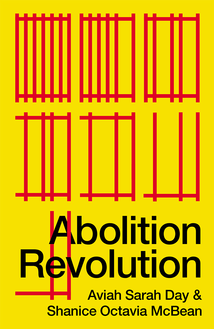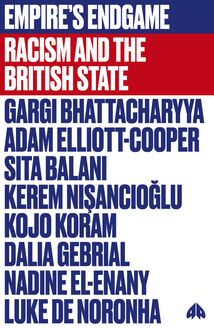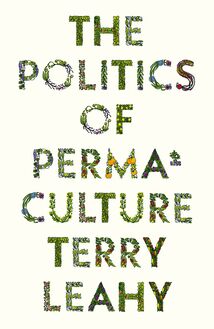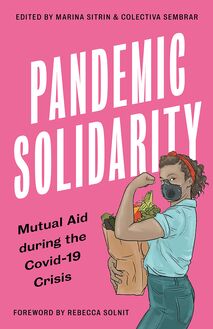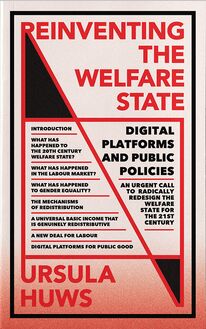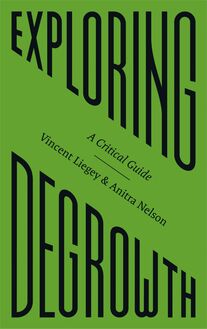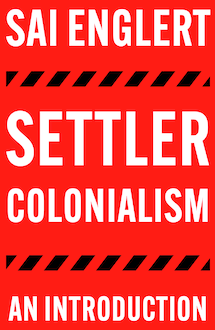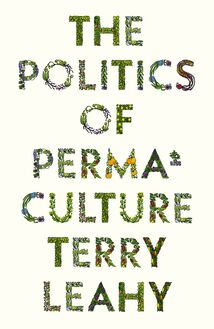Empire's Endgame , livre ebook
96
pages
English
Ebooks
2021
Vous pourrez modifier la taille du texte de cet ouvrage
Obtenez un accès à la bibliothèque pour le consulter en ligne En savoir plus
Découvre YouScribe en t'inscrivant gratuitement
Découvre YouScribe en t'inscrivant gratuitement
96
pages
English
Ebooks
2021
Vous pourrez modifier la taille du texte de cet ouvrage
Obtenez un accès à la bibliothèque pour le consulter en ligne En savoir plus
Publié par
Date de parution
20 février 2021
Nombre de lectures
1
EAN13
9781786807632
Langue
English
'Rigorous, impassioned and urgent' - Ash Sarkar
We are in a moment of profound overlapping crises. The landscape of politics and entitlement is being rapidly remade. As movements against colonial legacies and state violence coincide with the rise of authoritarian regimes, it is the lens of racism, and the politics of race, that offers the sharpest focus.
In Empire's Endgame, eight leading scholars make a powerful intervention in debates around racial capitalism and political crisis in Britain. While the 'hostile environment' policy and Brexit referendum have thrown the centrality of race into sharp relief, discussions of racism have too often focused on individual behaviours. Foregrounding instead the wider political and economic context, the authors trace the ways in which the legacies of empire have been reshaped by global capitalism, the digital environment and the instability of the nation-state.
Engaging with movements such as Black Lives Matter and Rhodes Must Fall, Empire's Endgame offers both an original perspective on race, media, the state and criminalisation, and a political vision that includes rather than expels in the face of crisis.
Series Preface
Preface
Introduction: Racialised Mythologies in Times of Neglect, Cruelty and Expulsion
PART 1 - RACIALISING THE CRISIS
1. Windrush
2. ‘Knife Crime’: Prevention and Order
3. Gang Land
PART 2 - THE PERSISTENCE OF NATIONALISM
4. Nationalist Convulsions
5. Progressive Patriotism
6. The Limits of Representation
PART 3 - STATE PATRIARCH
7. Our Heart Belongs to Daddy
8. ‘Pakistani Grooming Gangs’
9. (Powerful) Men Behaving Badly
PART 4 - SEND IN THE ARMY
10. Longing for Authority
11. Militarisation on the Mainland
12. Zero-sum Game
PART 5 - WHAT NOW?
13. Covid-19: A Real Crisis
14. Shared Grief, Hope and Resistance
Notes
Index
Publié par
Date de parution
20 février 2021
Nombre de lectures
1
EAN13
9781786807632
Langue
English
Empire s Endgame
Sita Balani is a lecturer in contemporary literature and culture at King s College London. She is the author of Deadly and Slick: How Sex makes Race in Postcolonial Britain (Verso, 2021). Gargi Bhattacharyya is Professor of Sociology at University of East London. She is the author of Rethinking Racial Capitalism (Rowman Littlefield, 2018), Dangerous Brown Men (Zed, 2008) and Traffick (Pluto, 2005). Nadine El-Enany is Senior Lecturer in Law at Birkbeck School of Law and Co-Director of the Centre for Research on Race and Law, and the author of Bordering Britain: Law, Race and Empire (MUP, 2020). Adam Elliott-Cooper is a Researcher in Social Sciences at Greenwich University. He is the author Black Resistance to British Policing (MUP). Dalia Gebrial is the editor of a special issue of the Historical Materialism journal on identity politics and co-editor of Decolonising the University (Pluto, 2017). Kojo Koram is a lecturer at the School of Law at Birkbeck College, University of London. He is the editor of The War on Drugs and the Global Color Line (Pluto, 2019). Kerem Ni anc o lu is a Lecturer in International Relations at SOAS, University of London. He is the co-author of How the West Came to Rule (Pluto, 2015), and coeditor of Decolonising the University (Pluto, 2018). He also blogs at The Disorder of Things. Luke de Noronha is an academic and writer working at the University of Manchester. He is the author of Deporting Black Britons: Portraits of Deportation to Jamaica (MUP, 2020).
FireWorks
Series editors:
Gargi Bhattacharyya, Professor of Sociology,
University of East London
Anitra Nelson, Associate Professor, Honorary Principal Fellow,
Melbourne Sustainable Society Institute, University of
Melbourne
Wilf Sullivan, Race Equality Office, Trade Union Congress
Also available
Reinventing the Welfare State:
Digital Platforms and Public Policies
Ursula Huws
Exploring Degrowth:
A Critical Guide
Vincent Liegey and Anitra Nelson
Pandemic Solidarity:
Mutual Aid during the Coronavirus Crisis Edited by Marina Sitrin and Colectiva Sembrar
Empire s Endgame
Racism and the British State
Gargi Bhattacharyya, Adam Elliott-Cooper, Sita Balani, Kerem Ni anc o lu, Kojo Koram, Dalia Gebrial, Nadine El-Enany and Luke de Noronha
First published 2021 by Pluto Press
345 Archway Road, London N6 5AA
www.plutobooks.com
Copyright Gargi Bhattacharyya, Adam Elliott-Cooper, Sita Balani, Kerem Ni anc o lu, Kojo Koram, Dalia Gebrial, Nadine El-Enany and Luke de Noronha 2021
The right of Gargi Bhattacharyya, Adam Elliott-Cooper, Sita Balani, Kerem Ni anc o lu, Kojo Koram, Dalia Gebrial, Nadine El-Enany and Luke de Noronha to be identified as the authors of this work has been asserted in accordance with the Copyright, Designs and Patents Act 1988.
British Library Cataloguing in Publication Data
A catalogue record for this book is available from the British Library
ISBN 978 0 7453 4203 0 Hardback
ISBN 978 0 7453 4204 7 Paperback
ISBN 978 1 7868 0762 5 PDF eBook
ISBN 978 1 7868 0764 9 Kindle eBook
ISBN 978 1 7868 0763 2 EPUB eBook
This book is printed on paper suitable for recycling and made from fully managed and sustained forest sources. Logging, pulping and manufacturing processes are expected to conform to the environmental standards of the country of origin.
Typeset by Stanford DTP Services, Northampton, England
Simultaneously printed in the United Kingdom and United States of America
Contents
Series Preface
Preface
Introduction: Racialised Mythologies in Times of Neglect, Cruelty and Expulsion
PART 1 RACIALISING THE CRISIS
1 Windrush
2 Knife Crime : Prevention and Order
3 Gang Land
PART 2 THE PERSISTENCE OF NATIONALISM
4 Nationalist Convulsions
5 Progressive Patriotism
6 The Limits of Representation
PART 3 STATE PATRIARCH
7 Our Heart Belongs to Daddy
8 Pakistani Grooming Gangs
9 (Powerful) Men Behaving Badly
PART 4 SEND IN THE ARMY
10 Longing for Authority
11 Militarisation on the Mainland
12 Zero-sum Game
PART 5 WHAT NOW?
13 Covid-19: A Real Crisis
14 Shared Grief, Hope and Resistance
Notes
Index
Series Preface
Addressing urgent questions about how to make a just and sustainable world, the Fireworks series throws a new light on contemporary movements, crises and challenges. Each book is written to extend the popular imagination and unmake dominant framings of key issues.
Launched in 2020, the series offers guides to matters of social equity, justice and environmental sustainability. FireWorks books provide short, accessible and authoritative commentaries that illuminate underground political currents or marginalised voices, and highlight political thought and writing that exists substantially in languages other than English. Their authors seek to ignite key debates for twenty-first-century politics, economics and society.
FireWorks books do not assume specialist knowledge, but offer up-to-date and well-researched overviews for a wide range of politically aware readers. They provide an opportunity to go deeper into a subject than is possible in current news and online media, but are still short enough to be read in a few hours.
In these fast-changing times, these books provide snappy and thought-provoking interventions on complex political issues. As times get dark, FireWorks offer a flash of light to reveal the broader social landscape and economic structures that form our political moment.
Preface
This book is the product of a deep sense that we cannot and do not want to make sense of the world alone. In our individual academic projects, we consider state racism from the perspectives of the disciplines we work in: law, anthropology, geography, international relations, sociology, cultural studies and literature. In our political organising, we try to push back against the state, to imagine new horizons of possibility outside of its logic, and to form bonds of solidarity capable of challenging its power. In collaborating on this book, we sought to create a space apart from the pressures of academic research and without the urgency of activism; a space to think, together, about the changing face of racism in Britain.
As we were working on the book, friends and colleagues often asked how, as a group of eight, we were writing together. More than once we were asked what we were up to. Was this some strange new cult? Who was ventriloquising who? The actuality was less dramatic. Rather than divide into smaller groups which would each produce a chapter, we opted for an anarchic mix of collective thinking, noisy and very funny discussion, silent writing and remote editing. We usually met for a few hours in one of our offices (or via video link during the Covid-19 lockdown), with some questions in mind, usually generated from an initial exchange of gossip or fury. As our discussions evolved, someone would map the conversation on a whiteboard or flipchart paper, tracing the connections and keeping track of key points. Realising we were running out of time, we would wind down the discussion to write, separately, in silence (exam conditions!) for an hour or so. We would then collate the pages and read through each other s work. The more we worked like this, the more synergy our writing took on.
Our aim was that when we read the final product, we would no longer be able to recall who had written what. In a landscape of personal brands and an academic culture that values celebrity over collaboration, working against the imperative to be a distinct, singular voice offered us a different approach to the challenge of writing. Collaboration also helped us to cope with the dizzying instability of life in contemporary Britain. We wrote the book between March 2019 and July 2020, during which time the mood music of authoritarian nationalism grew louder and louder. Meeting in person was a way to listen more closely to that music, to try to distil the relationship between what was being said and what was being done by the state, and to examine the cacophony of timeline media by placing it at a remove, if only for a few hours. Critical inquiry was a kind of group therapy, as the final throes of Theresa May s short, disastrous premiership gave way to Johnsonism.
The book s title, Empire s Endgame , reflects our starting point. This project began life as an homage to an earlier collectively authored book, The Empire Strikes Back , published in 1982 by a group at Birmingham s Centre for Contemporary Cultural Studies. We wanted to explore what a collective project to analyse and dismantle state racism might look like in our differently troubled and troublesome time. One parallel has been the dominance of the fantasy blockbuster in our collective cinematic imagination, something Greta Thunberg has decried, with some accuracy, by saying:
How can we tackle climate change if the adults are obsessed over a children s movie series based on Legos ? 1
And so the Endgame in our title is less a clever reference to the Samuel Beckett play and more a reference to the Avengers film. Avengers: Endgame is, infamously, the much marketed crescendo of a series of films depicting the Marvel universe. Through the second decade of the twenty-first century, an extensive series of Marvel superhero movies - plus a smaller parallel DC universe and a resurrection of the Star Wars series - dominated English-language cinema culture. As the world became increasingly chaotic, with an end to any pretence that there existed a political class fit to address the urgent and deadly challenges of forced migration, internal war and climate catastrophe, the displacement and spectacularisation of collective fears into a neo-mythic world of superheroes felt both symptomatic and all too understandable. Yet, despite the will to distraction, the endgame analysis of Marvel also echoed our own. In both of our accounts, and in the face of violence and climate disaster, something cataclysmic seemed
